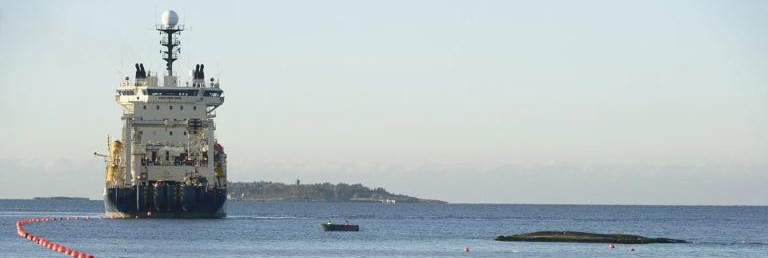The action follows a recent US warning that Moscow was likely to target critical undersea infrastructure.
A cable between Lithuania and Sweden was cut on Sunday (all local times), according to Telia Lithuania, the telecommunications company that runs the link.
Meanwhile, the state-owned Finnish telecom company Cinia said a cable which connects Finland and Germany was “disrupted” at 4am on Monday.
A repair ship is to be sent, and it says typical repair times are between five to 15 days. The location lies within the Swedish Exclusive Economic Zone, about 700km from Helsinki.
The Swedish Prosecution Authority says it is investigating suspected sabotage over the cut cables as is Finland’s National Bureau of Investigation.
Germany’s Defence Minister Boris Pistorius told journalists that he believes the cause is likely sabotage.
”Nobody believes that these cables were accidentally severed,” he said ahead of a ministerial meeting in Brussels, Belgium.
His comments came after the foreign ministers of Finland and Germany said in a joint statement that they were “deeply concerned” about the severed cable between their nations and flagged the possibility of “hybrid warfare.”
“The fact that such an incident immediately raises suspicions of intentional damage speaks volumes about the volatility of our times. A thorough investigation is underway,” the statement continued.
“Our European security is not only under threat from Russia‘s war of aggression against Ukraine, but also from hybrid warfare by malicious actors.”
Tracking data did not reveal any ships near the area where the cables were believed to have been cut.
Russia has shown greater interest in undersea cables in recent months, patrolling close to critical maritime infrastructure often far from its shores.
Two US officials told media outlets in September that they believe Russia would be more likely to carry out sabotage operations after Moscow beefed up its dedicated secretive marine unit that send fleets of surface ships, submarines and naval drones to survey the seabed.






